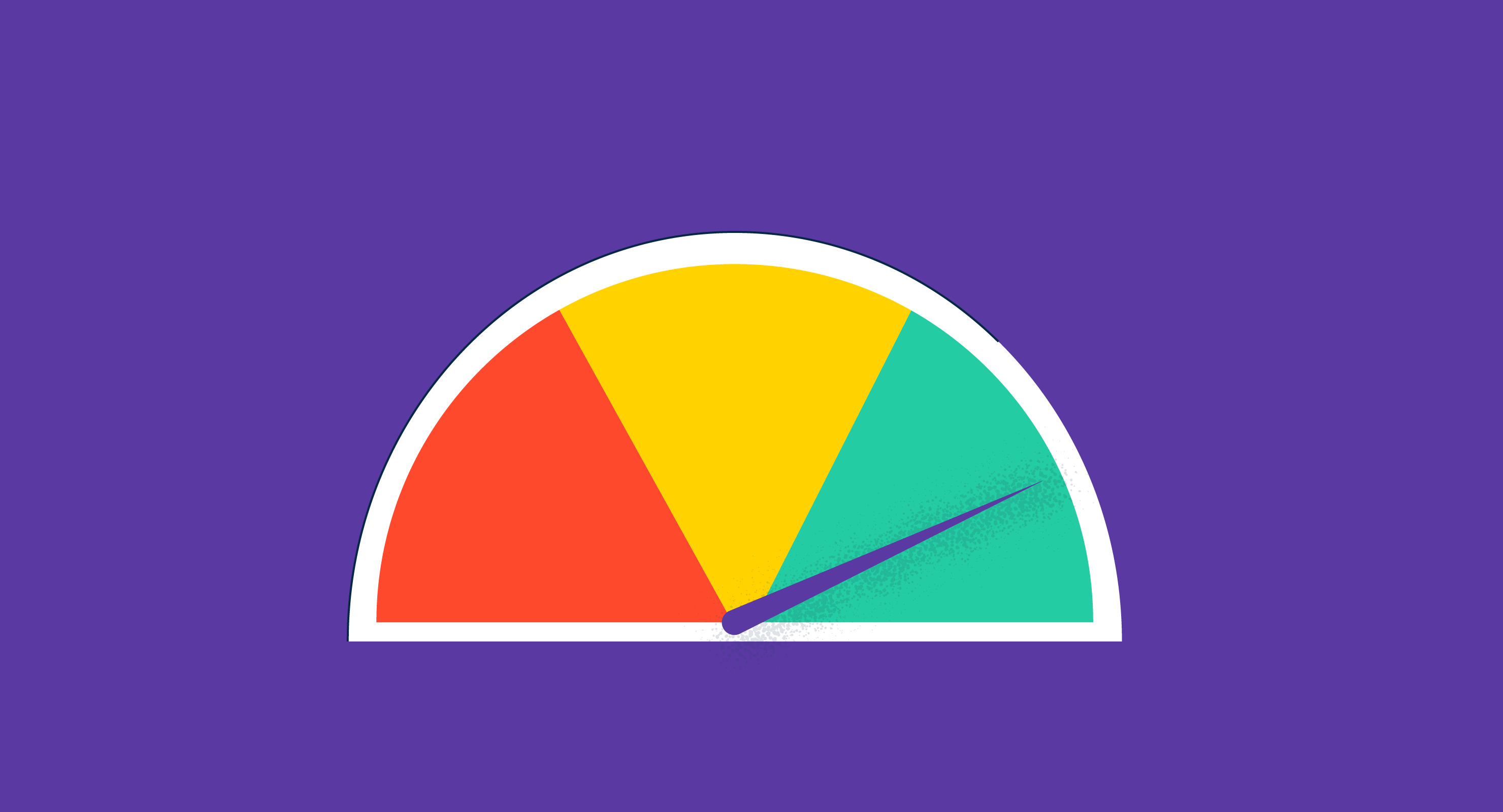

There is no shortage of important responsibilities for sales managers.
From overseeing sales operations to ensure that the rest of the team is set up for success to evaluating and optimizing strategies to maximize results, the job of a sales leader is not to be taken lightly.
But beyond all of the processes, goals, and outcomes that make a sales team successful, there is also something to be said about managers doing everything they can to support the team on a more personal level. Creating relationships in business – especially sales – is crucial, even on an internal level. Not only does this foster a culture of support, but it can also result in better overall team performance.
Identifying the best way to motivate your sales team and implementing those tactics takes time, empathy, and of course, coaching.
Sales coaching is the act of helping sales reps develop, improve their performance, and achieve their goals. The purpose of sales coaching is to create an environment where continuous growth, discovery, and learning are encouraged above all else.
A function of sales enablement, powerful and effective sales coaching is personalized and inclusive for each team member within the sales organization. We all work, learn, and find motivation in different ways, so applying the same sales coaching technique across the entire department is an ineffective approach.
It’s also important to note that sales coaching is not showing your reps the right way to do something every time. How would that be beneficial for their overall growth? (Hint: it wouldn’t.)
Rather than providing a step-by-step roadmap, sales coaching is about serving as a guiding light as reps navigate the world and challenges of sales. It takes an approach that focuses on skills and techniques rather than metrics and numbers.
For example, sales coaching might include sitting down with a rep and reviewing the transcript of a customer call to pick out what went well and what could’ve gone better. Or even something as simple as holding recurring meetings to ask where they need more support.
Thoughtful sales coaching can have a positive impact on your bottom line, but there are a few other benefits that your entire business can experience through this sales management practice as well.
The constant turnover of sales reps can present a larger issue to your business. You worked hard to lock down that talent, and seeing them walk out the door due to lack of growth opportunities is disheartening. Not to mention all the time you spent training and onboarding them.
Sales coaching plays a huge role in professional development. According to a study of 400 participants, 70% of employees indicated that training and development related to their job influenced their decision to stay at their current job. That number only increased for younger, emerging members of the workforce.
When you offer the training and development required for a salesperson to succeed, they feel the satisfaction of doing a good job and associate it with your coaching. This is a recipe for increased employee retention rates, and it will motivate reps to seek opportunities that will support both their professional development and employer.
After sales leaders have been participating in coaching for a certain amount of time, there’s the possibility of noticing trends and best practices that result in success. This shouldn’t be taken lightly. Just because one sales rep had luck with a tactic doesn’t mean replicating it with another customer will be as fruitful. However, when given time, best practices can show themselves.
Every business and customer is different, and sales coaches have just as much to learn through observation as salespeople do through being coached. Over time, sales managers can accumulate a list of best practices that they can incorporate into their sales coaching. Finding what works for your customers when selling your product is crucial, and the observation it takes to coach someone in sales can teach managers just that.
Every employee has to go through extensive training before starting a new position, sales professionals included. However, as time goes on and reps become more wrapped up in their work, it’s possible that some of that training can be forgotten.
Sales coaching offers the perfect opportunity to avoid that by making training a constant part of the job, just in a different style. For sales training to be effective, it has to be consistent and focus on long-term growth and learning. Lucky for sales managers, they can achieve this through coaching.
Like most things, sales coaching is well worth the effort, but it’s not easily won. When incorporating this professional development technique into your sales org, you can expect to encounter these challenges.
The sales department exists within your business to close deals and generate revenue for the company. That’s no mystery. However, focusing all of your time on that can happen at the cost of authentic and effective sales coaching conversations.
While a closed-won deal provides the immediate benefit of revenue, the perks of sales coaching might be a bit harder to communicate to higher ups. But if you play the long game and carefully track performance improvement, you might have a case.
Offering the same pieces of advice to each sales rep you coach will land you in a tough spot. It might work for some, but others might be left in an even worse position than they started.
Avoid generic action plans by getting to know each person on your team. Identify where they excel and where they struggle. Find what motivates them and inspires them to work harder. Through empathy, you can reach anyone.
A key purpose of sales coaching is to identify ways to improve your team’s performance. But for that to happen, they need to feel engaged in their development attempts. Preaching to someone week after week with the same old coaching techniques is one thing, and getting through to them is another.
An effective sales coach will check engagement levels throughout all of your sales coaching sessions. Make sure your lessons are resonating and that people are gaining something each time. It’s a fine line to walk between telling someone how to do their job and coaching them in hopes of boosting their performance and confidence.
Whichever tactics you end up implementing for your sales coaching, there are a few important tips to keep in mind in your approach. When coming up with a plan of action, ask yourself where the following components can be incorporated.
Observing your sales reps in their natural selling habitat is a good place to start with sales coaching, but narrowing it all down to identify opportunities for improvement can be difficult. This is where sales data comes in.
Make sure data has a place in your sales coaching strategy. Sales performance management software can monitor your sales team’s progress, effectively identifying success and picking out areas where certain employees could improve. This data surrounding progress can be viewed at both a team level and with individual reps so you can gain direction for both group and personal coaching sessions.
Pay special attention to sales metrics and KPIs and the activity levels it takes to sustain them. That not only offers a good place to start, but a benchmark metric to monitor progress after sales coaching sessions as well. Trust your gut when looking for areas where you can support your sales team. But when in doubt, lean on sales data.
There are a lot of outcomes that can be considered a success in sales. Closing a deal, hitting a group revenue goal, or increasing profit margins across the business are all wins, but they happen at different levels. Your sales coaching needs to reflect that.
Take the multifaceted aspect of sales into consideration when ideating strategies for training and coaching. From a big picture level, you can offer training that helps people within the organization better understand your customers and target audience.
Working with the team, you can focus training on establishing and maintaining valuable and mutually beneficial relationships with customers. And at an individual level, offer coaching on customer messaging based on the results of activity metrics.
Feedback is a gold mine for your sales coaching strategy. You aren’t in this alone – you have an entire team working with you on this who all care about the personal and professional development opportunities that you provide. You can’t be the only person throughout the sales organization to decide where people are succeeding and struggling.
Remember to ask salespeople where they would like to learn and develop more. Keep it open ended and come up with a game plan together. Again, make sure to do this regularly on an individual and team basis so you are approaching problems as they arise.
Another way to leverage your team is by having high performers participate. Your team isn’t going to want to listen to you coach them forever, and switching it up with a new teacher can muster up more excitement and motivation.
Lucky for the amateur sales coach, there are an abundance of tools that can serve as guiding lights in your sales coaching program. The list below contains real-user reviews from the best sales coaching software on the market.
To be included in this list, a product must:
*Below are the top five sales coaching software tools from G2's Winter 2021 Grid® Report. Some reviews may be edited for clarity.
Gong offers conversation intelligence capabilities that can capture customer interactions on multiple devices, such as phone calls, video conferences, and emails. This gives sales managers a glimpse into what was said, helping them offer best practices moving forward.
“It's a great coaching tool and keeps the team motivated and thinking about our professional development. It can be high-level but you can click into the charts for granular views and see the call data source. I haven't used the coaching feature but I do love that it exists.”
- Gong Review, Elizabeth N.
“The onboarding process was so simple that I almost felt like I was left to my own devices after a month. I have a customer success person to reach out to but since my company is small, I don't get a ton of attention. The flip side of that is that the product is easy enough to where I can still get a ton of value out of it.”
- Gong Review, Patrick F.
SalesLoft is a sales engagement platform that focuses on customer communication and sales cycle optimization. The purpose of using this tool is to identify best practices to replicate success in various sales interactions. SalesLoft can automate sales tasks and provide insight into team and individual performance, fueling the sales coaching process.
“Very user friendly platform-- easy to set up cadence, easy to push it out, easy to share with others on the team. Great analytics and great integration with SFDC. For the sales user, it’s a swift, nimble tool that doesn’t take away from my sales push; it serves me well and is not a huge time suck to be effective.”
- SalesLoft Review, Margie A.
“What's least helpful is not having time gates that we can program to prevent messages from sending at the wrong times. It's critical for our business to have control of this for the sake of our customers. I'd like to see more options like email gating.”
- SalesLoft Review, Danladi G.
Chorus.ai is a conversation intelligence tool that automatically records and transcribes communication with customers. This allows for conversation data analysis, which is then used for follow up communication, coaching, and onboarding new sales reps.
“Chorus allows you to track any competitors mentioned during the call. By doing this, Chorus better allows me and the rest of our sales team to understand where we are winning and losing as an organization. Another very useful functionality is the ability to search for any keywords that were mentioned throughout the call. This helps save time by making it so that I don’t have to listen to the recording in its entirety every time I want to find a specific phrase or keyword.”
- Chorus.ai Review, Vivian L.
“I wish you could increase the speed. As a tool designed for greater efficiency, it would be great to have a few more options to enhance the experience and allow one to review a greater amount of calls in a shorter span of time.”
- Chorus.ai Review, Ben K.
The mindset behind MindTickle is sales readiness. MindTickle is a data-driven sales training and onboarding software that focuses on finding the most effective ways to coach sales reps and improve their performance moving forward.
“It’s really easy to grasp the necessary knowledge provided so that it may be applied in a true work environment. MindTickle made it really easy to learn my new job quickly, and it continues to help me learn more about my position as I dive deeper into my career and work towards achieving my goals.”
- MindTickle Review, Marie G.
“Some of the modules don't allow us to retake the tests and better the previous scores. An option here would definitely help while it encourages to go through the training again for better understanding and higher scores.”
- MindTickle Review, Subhash C.
Lessonly is a corporate learning management system that helps businesses train, practice, and work better. The purpose of these training sessions is to help companies in all business areas, including sales, onboarding, net promoter scores, and customer experience.
“Lessonly's company culture, its people and its product come together to provide something that is rarely seen. Combined they have levelled up our organization and changed not only the quality and efficacy of our onboarding and training, but they have given us so much in the way of being a great company. You will not find a better company or product.”
- Lessonly Review, Michael B.
“There aren't any big downsides to the platform, but there are a few items that could be improved to help admins. The reporting functionality can be limited and there are not any dashboards built into the platform, so you need to rely on APIs to external systems.”
- Lessonly Review, Emma C.
At the end of the day, we show up at work to do our best and get paid. The purpose of sales coaching is to make that experience as efficient and rewarding as possible. Yes, your sales team is there to generate revenue for your company, but it’s a whole lot more enjoyable when growing in the process.
To coach the team, you first need to recruit it. Get the best talent by offering a killer candidate experience.

Use software to stay in the loop regarding your sales team's performance.
Mary Clare Novak is a Content Marketing Specialist at G2 based in Burlington, Vermont, where she is currently exploring topics related to sales and customer relationship management. In her free time, you can find her doing a crossword puzzle, listening to cover bands, or eating fish tacos. (she/her/hers)

Use software to stay in the loop regarding your sales team's performance.
Have you put enough time and effort into your sales training?
 by Joe Caprio
by Joe Caprio
Software is helpful to all areas of a company, but no team needs the right tools more than a...
 by Rob Light
by Rob Light
A sales manager carries the heavy burden of overseeing the branch that has the most direct...
 by Tricia Dempsey
by Tricia Dempsey
Have you put enough time and effort into your sales training?
 by Joe Caprio
by Joe Caprio
Software is helpful to all areas of a company, but no team needs the right tools more than a...
 by Rob Light
by Rob Light
Never miss a post.
Subscribe to keep your fingers on the tech pulse.



